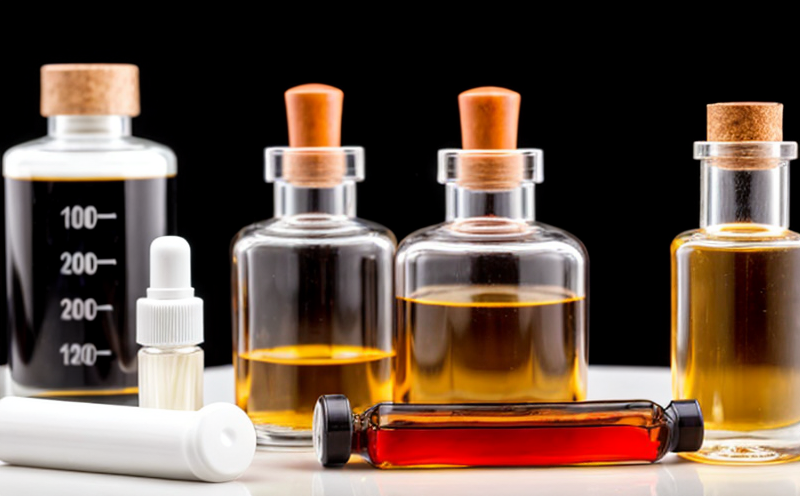Homeopathic Drug Testing
The process of homeopathic drug testing is a specialized and intricate procedure designed to ensure the quality, safety, and efficacy of homeopathic medications. Homeopathy, a system of alternative medicine founded by Samuel Hahnemann in the late 18th century, relies on the principle of "like cures like." This means that diseases are treated with highly diluted substances that produce symptoms similar to those of the disease.
Homeopathic drug testing aims to validate these principles through rigorous analysis. The tests performed ensure that homeopathic remedies meet stringent quality standards and are safe for human consumption. The scope of this service includes not only potency checks but also the identification of contaminants, impurities, and adulterants that could compromise the integrity of the product.
Understanding the intricacies of homeopathy is crucial in conducting accurate tests. Homeopathic remedies are prepared by serial dilution and succussion (vigorous shaking), which can significantly alter their chemical composition compared to conventional drugs. This makes it essential for laboratories specializing in this field to have a deep understanding of both the theoretical underpinnings and practical applications of homeopathy.
The testing process begins with the receipt of raw materials, extracts, or finished products from clients. These samples are thoroughly analyzed using advanced analytical techniques such as high-performance liquid chromatography (HPLC), mass spectrometry (MS), and gas chromatography-mass spectrometry (GC-MS). Each step is meticulously documented to ensure traceability and compliance with international standards.
The acceptance criteria for homeopathic drugs are stringent. They must meet the requirements set forth by organizations such as the World Health Organization (WHO) and the European Pharmacopoeia. These guidelines specify the permissible levels of active ingredients, excipients, and any potential contaminants that could affect the product's quality or safety.
One of the key challenges in homeopathic drug testing is ensuring consistency across batches. The serial dilution process can lead to variable concentrations of active substances. Testing laboratories must employ robust methods to standardize these variables, ensuring that each batch adheres closely to defined specifications.
In addition to chemical analysis, physical and biological tests may also be conducted to assess the stability and efficacy of homeopathic remedies. These tests often involve comparing results with reference standards or established benchmarks within the industry.
The importance of accurate and reliable testing cannot be overstated in the realm of homeopathy. Errors in potency can lead to ineffective treatments, while contamination risks could pose serious health hazards. By providing precise and consistent test results, our laboratory helps ensure that homeopathic medications are safe and effective for patients worldwide.
Why Choose This Test
Ensures compliance with international standards for homeopathic drug quality.
Provides accurate potency checks and identification of potential contaminants.
Maintains product consistency across batches, ensuring reliability for consumers.
Reduces risks associated with ineffective or contaminated homeopathic remedies.
Supports the development of safe and effective homeopathic treatments through rigorous testing protocols.
Quality and Reliability Assurance
The quality and reliability assurance processes in our laboratory are designed to uphold the highest standards of accuracy and precision. Our team of experts uses cutting-edge technology and follows strict procedures to ensure that every test conducted is both reliable and repeatable.
We invest heavily in maintaining state-of-the-art equipment, which undergoes regular calibration and maintenance to ensure its optimal performance. This commitment to quality extends to our personnel as well; all staff members are trained extensively in the latest testing methodologies and best practices. Continuous professional development ensures that we remain at the forefront of technological advancements.
Our laboratories adhere strictly to international standards such as ISO/IEC 17025, which governs proficiency and competence in scientific and technical testing and calibration services. Compliance with these standards guarantees that our laboratory meets rigorous external quality assurance criteria, providing clients with confidence in the reliability of our test results.
In addition to standard compliance, we employ additional measures to enhance the integrity of our testing processes. Regular internal audits and external evaluations ensure continuous improvement and adherence to best practices. These efforts are aimed at fostering a culture of excellence within our organization, where quality is not just a goal but an integral part of daily operations.
The reliability of our test results is further bolstered by robust data management systems that track every aspect of the testing process from sample receipt to final report generation. This comprehensive approach ensures transparency and traceability, allowing us to provide clients with detailed insights into each step of the testing journey.
Customer Impact and Satisfaction
At our laboratory, we prioritize customer satisfaction above all else. By providing accurate, reliable, and timely test results, we ensure that customers can make informed decisions regarding the quality and safety of homeopathic remedies they use or sell.
The impact of our testing services extends beyond mere compliance; it enhances trust between manufacturers and consumers. Knowing that their products have been rigorously tested for potency and free from contaminants reassures both parties about the integrity of these medicines. This trust fosters long-term relationships based on mutual respect and shared goals.
We understand the critical role our laboratory plays in supporting various stakeholders within the pharmaceutical industry, including R&D teams, quality assurance departments, compliance officers, and procurement specialists. Our services are tailored to meet their specific needs, ensuring that they have access to the information required to make strategic decisions.
Moreover, we offer comprehensive support throughout the testing process, from initial consultation through final analysis and reporting. This proactive approach ensures that clients receive guidance at every stage, enabling them to optimize their operations and improve product quality.
Your satisfaction is our priority. We are committed to delivering exceptional service and results that exceed expectations. With us, you can be confident in the quality of homeopathic remedies being produced or evaluated.





